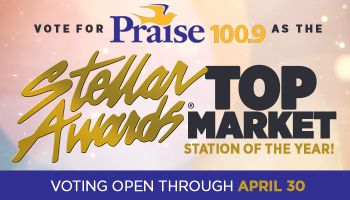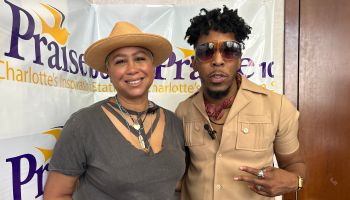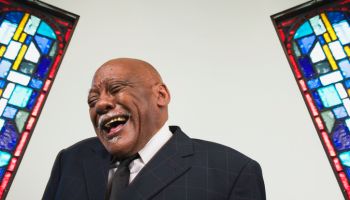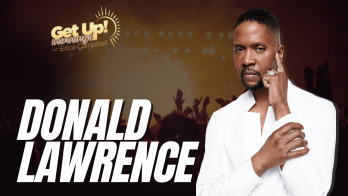The wealth of Black people in America and the gap between other racial groups has been well documented, but that doesn’t mean Black folks don’t have any money to spend. Even though the racial wealth gap is actually widening, Black people can spend money with the best of them, statistics show.
MORE: How Closing The Racial Wealth Gap Would Change Black History
With Black History Month upon us, we take a closer look at the spending habits of Black America, by the numbers.
And with nearly 50 million Black people in the United States, Black consumers spend more than $1 trillion a year. Nielsen, which provides analytical insights about the habits of consumers, released an in-depth look at Black buying power to document the trends associated with that tremendously reliable level of spending.
“At 47.8 million strong and a buying power that’s on par with many countries’ gross domestic products, African Americans continue to outpace spending nationally,” said Cheryl Grace, Nielsen’s Senior Vice President of Community Alliances and Consumer Engagement and co-creator of the DIS Report.
Nielsen’s report, entitled, “It’s in the Bag: Black Consumers’ Path to Purchase,” found that Black buyers have especially influenced the technology market and broke down the spending habits of Black consumers compared to the rest of the population at large.
The spending by Black consumers is especially influenced by advertising, the report found, with them being 42 percent more likely than the rest of the country to respond to ads on mobile.
That’s because, the report found, that “Ninety-six percent of African Americans own a smartphone, and those aged 35+ surpass the total population in their age group by 2% for smartphone ownership. In fact, African Americans make up 23% of the total market for U.S. cellular sales, while only accounting for 14% of the overall population.”
Black folks also love to spend their money on beauty and grooming products, shelling out about $573.6 million on an annual basis for “personal soap and bath needs.” That was about 19 percent higher than any other demographic.
We also like to spend lavishly at high-end department stores, with 63 percent of Black folks saying in a survey they like to buy from Saks Fifth Avenue, 45 percent at Neiman Marcus (45%) and 24 percent at Bloomingdales.
Also, counter to the current trend of shopping online, Black folks prefer to spend their money in person instead of over the internet.
“More than half (52%) of African Americans find in-store shopping relaxing, compared with 26% of the total population” and “55% of Black consumers say they enjoy wandering the store looking for new, interesting products,” the Nielsen report found. “When shopping, African Americans are more influenced than the total population by store staff (34% more likely), in-store advertising (28% more likely) and merchandising (27% more likely).”
And when it comes to supporting our own, we are first in line to buy from Black-owned businesses, especially those in the beauty industry, where Black folks accounted “for almost 90% of the overall spend.”
We are also influenced by celebrities to the point that “35% of African American shoppers are more likely to agree, ‘when a celebrity designs a product, I am more likely to buy it.’”
Food is also another shopping sector that Black folks spend liberally on. According to Nielsen’s report, “soul food” is a major driver for “African American consumers’ top grocery purchases,” including certain brands like “Quaker grits ($19 million); Louisiana Fish Fry ($11 million); Glory Greens (frozen and fresh, $9.5 million combined) and Jay’s Potato Chips (nearly $2.7 million).”
But it’s not all selfish consumerism on the part of the Black dollar. A study from 2012 revealed that African Americans donate a larger share of their income to charities than any other group in the nation.
“We have been givers since the beginning of time,” Tracey Webb, founder of Washington D.C-based Black Benefactors, previously told NewsOne. “From our communities in Africa to the Underground Railroad and the Civil Rights Movement, Black collective giving is something that’s inherent in us.”
With that said, Black Enterprise cautioned conflating buying habits with wealth.
“To the degree we withhold our spending from companies that are harmful, disrespectful, or unfair to black consumers, and intentionally direct our dollars toward companies (including black-owned businesses) that are beneficial to black communities and value black consumers, our spending power is important.,” Alfred Edmond Jr., Senior Vice President and Editor-at-large of Black Enterprise wrote in 2017.
“In other words,” he continued, “the ability to build wealth depends on the degree we control our spending, so that after we pay income and other taxes, and for necessities such as housing, food, and transportation, we have something left over to not just spend, but to earmark for emergency savings, retirement savings, an investment portfolio, buying real estate (beginning with our own homes), financing businesses, and acquiring other assets.”
SEE ALSO:
Turning African-American Buying Power Into Economic Power
Black Consumers: Paying More To Get Less
Black Buying Power By The Numbers: History In The Making was originally published on newsone.com
















